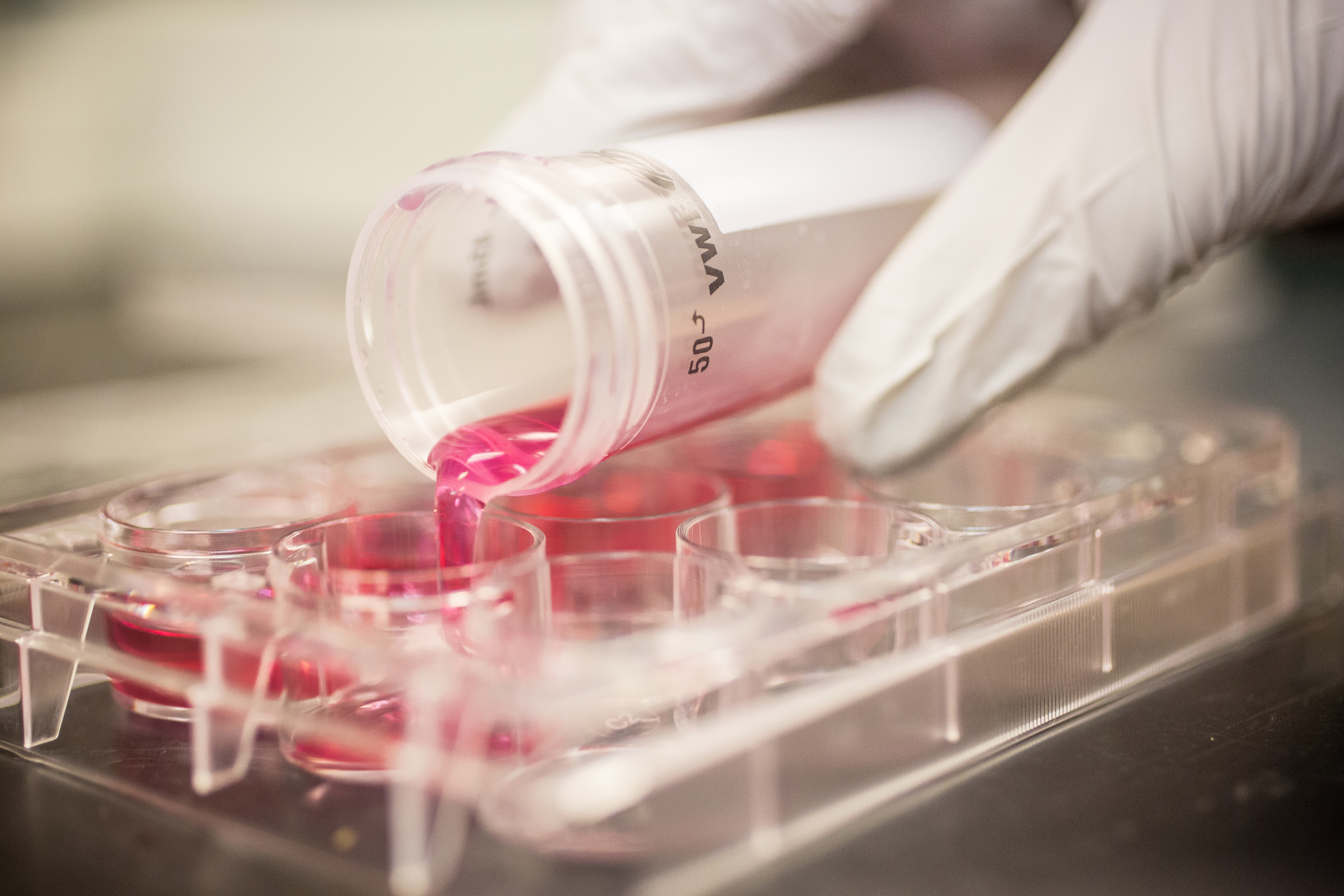The Department of Chemistry offers a Doctor of Philosophy degree in Chemistry. A Chemistry PhD consists of approximately one-third of formal course work and two-thirds of independent study and research. Completion of a Doctor of Philosophy in Chemistry degree program normally requires a minimum of four years full-time work after entrance with a Bachelor's degree.
Support
All graduate student are fully supported (tuition and stipend for 2 semesters plus the summer) through Teaching or Research Assistantships or Fellowships throughout their Ph.D. work. The Chemistry Department strives to create an open and collaborative environment that encourages students to learn from each other as well as from their dedicated faculty mentors.
Teaching Assistantships are provided by the department and usually provide up to 10 credits of tuition per semester as well. The teaching assistantship requires no more than 20 hours per week assisting the department’s professors in one (or more) of the department’s undergraduate classes.
Research Assistantships may be provided by the department, the college, or the Research Advisor. Students supported by a research assistantship are expected to spend about 40 hours per week on the research designated by the support. Those students in receipt of a research assistantship will also receive up to 10 credits of tuition per semester.
Mentoring is provided through many avenues. The majority of a Ph.D. in Chemistry is composed of the research performed under the mentorship and guidance of a student’s Research Advisor. Our smaller, but tight-knit program, enables students to receive one-on-one mentorship from their research advisors, more frequent collaboration with their peers, and exposure to a broader range of science.
After their first year students choose a doctoral committee of at least four other chemistry faculty, faculty in related disciplines at Lehigh or from other universities, or knowledgeable persons located in industrial or government laboratories who offer feedback on the student’s progress at various milestones throughout their Ph.D. In addition, the chemistry graduate advising committee (GAC) and the Department Graduate Administrator provides administrative support for students and monitors their progress in the program.
What does it take to get a Chemistry PhD?
The current version of the Graduate Student Handbook is available here. To summarize, the general flow of a PhD in chemistry consists of:
Proficiency Exams
A Ph.D. candidate must demonstrate proficiency in undergraduate chemistry within their first semester in residence. The department administers proficiency examinations in biochemistry, analytical, organic, inorganic, and physical chemistry.
Course Work
All full-time graduate students must register for at least 9 credits of graduate-level (i.e., 400-level) coursework. A broad spectrum of courses are available in the Department. Graduate students consult with the Graduate Administrator (first semester ) or their Research Advisor to build a unique program that encompasses the student’s research topic and interests.
Choosing a Research Advisor
The Department of Chemistry uses a free-agent model in which graduate students are admitted into the program and spend their first semester choosing a research group. Each student will meet with at least 4 faculty to discuss research projects before submitting a list of their top choices to the graduate advising committee (GAC).
General Examination
The General Doctoral Examination, sometimes referred to as the “Qualifying Exam,” is an oral defense of a written research proposal presented to the chemistry faculty on the student’s doctoral committee that must be completed before the beginning of the student’s fifth semester.
PhD Dissertation
The requirements for the written Dissertation and the timetable for the submission of both a draft of this document and the final version of the Dissertation are established by the College and University Regulations.

